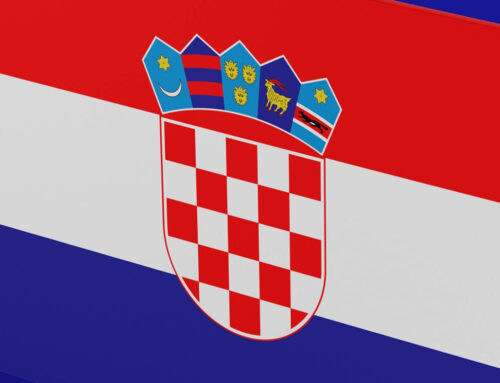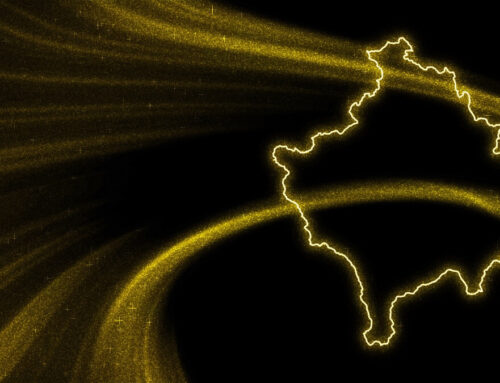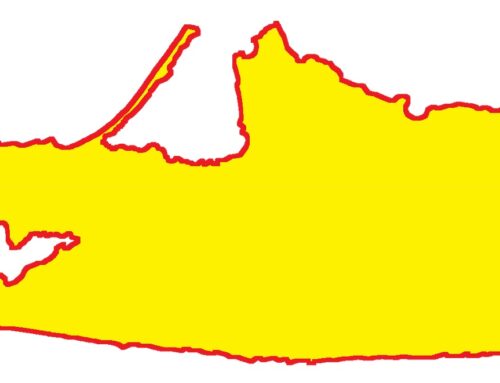Dionis Cenuşa
“EU expectations must be calibrated to meet the Moldova government’s capacities of delivery. The new EU-Moldova dialogue requires less subjectivism and simplification and more pragmatism and structure...“
The political dialogue between the European Union (EU) and Moldova is at its highest level since the signing of the Association Agreement in 2014. After almost seven years of geopolitical turmoil in foreign policy and numerous domestic political and sectoral crises, Moldova it is governed by a political force, the Action and Solidarity Party (PAS), which is viewed in the EU strictly through a positive prism. The pro-European geopolitical profile of the government in Chișinău is important to the EU, but even more so because the ruling party’s European convictions go hand in hand with a strong commitment to produce sustainable reforms. In such a favorable context, Prime Minister Natalia Gavrilița’s first visit to Brussels took place from September 27 to 28 (Gov.md, September 2021).
Although the Prime Minister was accompanied by Nicu Popescu, Deputy Prime Minister and Minister for Foreign Affairs and European Integration, the latter played a rather secondary role in bilateral meetings with the EU institutions. But due to the strong interpersonal contacts, Popescu’s presence was helpful in acquainting the Prime Minister with the “non-governmental ecosystem in Brussels”. The visit also became an opportunity to publicize Prime Minister Gavrilița, little known in official European circles. As a result, the face of the “European Moldova” known to the EU will not be associated solely with President Maia Sandu. To draw a Eurocentric image that is autonomous of that of the country’s president, Prime Minister Gavrilița notified from Brussels about the EU macro-financial aid (€ 50 million), which should reach Moldova during the month of October, but also about other European financing opportunities. At the same time, the trip of Moldovan officials to the European capital helped them to establish a favorable discourse on the intentions and actions of the government, through interviews with pan-European media (Euroactiv and EUObserver) and socializing with the expert environment in Brussels.
Only the government institution reported on the visit to Brussels, publishing a total of eight press releases on the Moldovan Prime Minister’s discussions with various EU officials and European politicians in the European Parliament Delegation to the EU-Moldova Association Committee (members of the European People’s Party and Renew Europe). On the one hand, the opinions expressed by European actors have been dominated by a kind of “geopolitical enthusiasm” and hyper-optimism about the expectations of the reforms in Moldova, which are currently in their infancy. On the other hand, the European side has shown a wide openness to provide assistance. The messages sent by Moldovan officials were characterized by a strong determination to carry out reforms and a strong ambition to intensify, deepen and diversify bilateral relations with the EU. The prime minister’s speech also betrayed reminiscences of the election campaign, which ended in July. In particular, some of the arguments that the prime minister communicated to the Europeans have criticized the missteps of previous governments. That included the investigation of banking crimes and insufficient support from the business environment during the 2020 pandemic.
Although there have been extensive discussions about opportunities for cooperation, attention has not been focused on all the structural problems facing Moldova, which are not only related to corruption. Before starting the discussions on the extension of the areas of cooperation with the EU, the institutional capacities, the human resources of the central and local public administration, as well as the mechanisms of enforcing the national legislation transposing the European acquis, should be evaluated accordingly, in an objective and depoliticized form. Justice reform and the fight against corruption are priorities, but they cannot be the government’s only concerns. For European integration to produce results, including revenue for the national budget, it must penetrate the mindset and work ethic of state institutions. At the same time, the generation of new staff should not be done by forced rejuvenation or political cleaning of institutions, but by retaining and attracting talent regardless of political criteria, age category, etc. At the same time, EU technical assistance aimed at capacitating institutions should focus on comprehensive and systematic training of officials, equipping institutions, etc. The most appropriate way to set European integration priorities, properly, should be through public consultation of the Association Agenda with the EU, before the government approves it with the European side. This is even more important because it appears that the new Agenda is designed for six years (2021-2027), not for two as before.
“Historical moment” versus pragmatic estimates
Both the PAS government and the EU structures want to make the most of the historic opportunity generated by the presidential elections of 2020 and early 2021, which translates into the seizure of power by political forces that will carry out genuine reforms. It is considered that in this way, Moldova can move towards radical and irreversible changes. The Moldovan authorities want to root European values during the next four years of government, and to push for unpopular reforms through the EU conditionality requirements. In their approach to the EU, Moldovan government does not necessarily want to increase financial aid, but rather to make it more flexible to redirect it to sensitive areas of reform, where Moldovan institutions can effectively absorb foreign assistance. All these characteristics will be detailed during the EU-Moldova Association Council, scheduled for the end of October. At the same time, the new Association Agenda will be presented, according to which the Moldovan authorities should draft the future National Plan for the implementation of the Association Agreement, now obsolete.
In practical terms, the intentions of the Moldovan government in relation to the EU are based on several levels. First, with a slim budget, the government wants to use European assistance to ease budget pressure during the pandemic. In this regard, Prime Minister Gavrilița expressed readiness to introduce partial and technical unemployment mechanisms for employees of SMEs, by relying on European money.
In addition, the PAS government aims to create “high-level dialogues” with the EU structures on security, justice and energy (environment, not included, though it is an absolute priority). This would increase the external pressure on internal reforms in the three aforementioned areas, as well as political support and technical and financial assistance from Brussels. These dialogues can serve as a pretext to take on the tools to support the reforms developed by the EU for countries with a European perspective in the Western Balkans. The EU project “International Monitoring Operation” (2017-2020, with a budget of around € 660 million) set up to monitor judicial reform in Albania is an eloquent case of good practice, which can be replicated in Moldova. However, even if the “Albanian model” is applied, it involves enormous costs, considerable institutional capacity and a timeframe of between 5 and 7 years, which are available for Moldova. Dialogue on security is also essential for Moldova, especially since the country’s constitutional neutrality allows the development of rather restricted relations with NATO. Unlike Georgia and Ukraine, which receive military support from NATO states, Moldova is not included in the European security map in strategic and operational terms (hybrid threats, cybersecurity). In the field of energy, a high-level dialogue would be valuable if it could increase the support that the EU already provides through the Energy Community, which played a key role in the ‘Europeanisation’ of Moldovan energy legislation in 2015-2017 and in the follow-up of its implementation.
Another dimension highlighted by the Moldovan side is the country’s integration into European spaces. However, this can only happen only if and when the EU can absorb the costs. The focus is the acceptance of Moldova in the “European roaming space”. Through such integration, European integration would be more easily felt by the population (as the visa-free regime has become in the past), given the size of the Moldovan diaspora in European countries. In any case, the European appetite for such initiatives will always be limited and carefully measured, as the precedents set in relation to Moldova could become a prototype for Georgia and Ukraine.
Last but not least, the PAS government has a strong vision for interconnection in the field of transport and energy (with European funding of around € 230 million), but it seems to be limited to (re)building physical infrastructure. In fact, in addition to this, there is a need for a sustainable approach to connectivity, which includes modernizing and improving the security of state-owned companies responsible for the “maintenance” of infrastructure, in particular critical elements of infrastructure. Such a contribution will increase the resilience of the state (3DCFTA, August 2021), which the government is currently talking about in rather vague terms. External evaluations and attracting bona fide local and foreign investors can be more beneficial than ever, given the positive image of the current government.
Are government plans too reliant on European aid?
The EU has repeatedly reiterated that it is ready to support the reform agenda proposed by the government in Chișinău, which is also considered the country’s “European agenda“. During talks with Prime Minister Gavrilița, the President of the European Council, Charles Michel, stressed that “Moldova is an important and priority partner.” Only in September-October, financial aid to Moldova amounts to 86 million euros. This amount consists of direct budget support of € 36 million (from the Economic Recovery Plan, with a budget of € 600 million until 2024) and € 50 million of macro-financial assistance for 2020.
Together with European Neighborhood and Enlargement Commissioner Oliver Varhelyi, Moldovan officials discussed, among other things, the launch of a pilot project to modernize Moldova’s rural economy through the development of the food industry and agriculture. Obviously, the money for this project will be sought mainly in Brussels. At the moment, it is difficult to estimate whether there is sufficient EU financial coverage for all Moldovan initiatives. However, it is certain that the government’s ambitions will require considerable financial resources.
In the absence of the President of the European Commission, Ursula von der Leyen, the Prime Minister of Moldova spoke with the Vice President of the European Commission and High Representative, Josep Borrell, about expanding bilateral cooperation, including the resolution of the Transnistrian conflict. . In both areas, the European side has shown its willingness to support the efforts of the Moldovan government, provided that European principles are applied: democracy, rule of law and human rights. To fulfill European wishes, Prime Minister Gavrilița assured that the government would cooperate closely with the EU, but also with the Venice Commission, in reforming the judiciary, in order to ensure compliance with European standards. Also in Brussels, in the context of judicial reform, the Prime Minister suggested that the independence of certain institutions was strengthened before a prior reform. The representative of the European Commission Katarina Mathernova supported a similar idea during the discussion with civil society in Brussels, together with Moldovan officials. Such congruence of opinion indicates that government deviations are apparently known (IPN, September 2021), but not disapproved in any way by the European institutions.
In lieu of conclusions…
The “historic moment” generated by the reformist political forces, with the help of the 2020-2021 elections, must be anchored in realistic estimates of the local and regional situation. The strengthening of state institutions is as high a priority as the fight against corruption or the reform of the judiciary. Only on a meritocratic basis and eliminating political criteria, professionals can remain and join the institutions, contributing to the reform process not from cyclical political calculations, but from the perspective of the public interest, whose nature is constant.
At the same time, although Moldova may receive special bilateral aid from the EU for concrete reforms, integration into “European areas” will be limited to offers that the EU can also afford in relation to Ukraine and Georgia. To overcome associated state status and eventually advance beyond the trio with Ukraine and Georgia, approaching the Balkan countries with a European perspective, Moldova must initiate qualitative and sustainable reforms in the next 4-8 years. Debates on the European perspective are premature and even damaging at this stage where no serious reform has been started or carried out and no concrete and sustainable effect has so far been produced.
Finally, the EU’s expectations must also be calibrated to match the Moldovan government’s ability to deliver. The new EU-Moldova dialogue requires less subjectivism and simplification and more pragmatism and structure. In any case, the real and lasting benefits for the country will be to develop its own capacities, rather than delegating responsibilities to European actors.
Source:
https://www.ipn.md/en/revitalizing-the-eu-moldova-dialogue-between-geopolitical-enthusiasm-historical–7978_1084799.html
This analysis is published for the German Hanns Seidel Foundation and the IPN News Agency. FOMOSO got permission to publish it as well.






